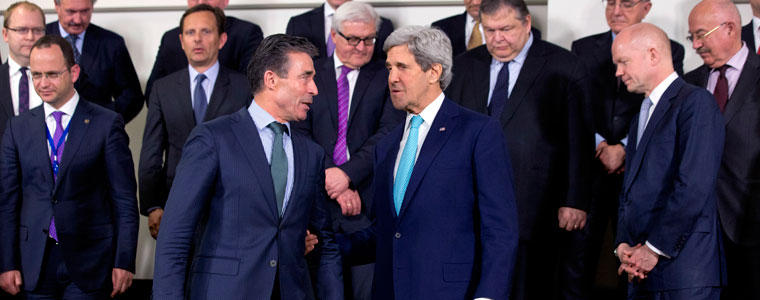NATO's Balancing Act
With the turmoil in Ukraine shining a new spotlight on security in Europe, will the North Atlantic Treaty Organization refocus itself on collective defense? The U.S. Institute of Peace and Women in International Security hosted a discussion to explore NATO’s future.

Russia's invasion of Crimea poses an urgent and serious challenge for the venerable Atlantic Alliance. Some argue that in response NATO needs to prioritize collective defense, its original mission, and deemphasize the crisis management and cooperative security roles that have involved the Alliance in conflicts from Afghanistan to Libya.
The impact of the Ukraine crisis on NATO's balancing among these three tasks remains to be seen. Will the 28 NATO member countries agree on a common analysis of the threat? What is the role of individual NATO members, and to what extent are they willing to invest in new capabilities? These questions will be at the forefront of September's NATO Summit in South Wales, the first since the 2012 Chicago meeting.
The discussion explored the Alliance's future with four world-renowned NATO experts, including David S. Yost, author of NATO's Balancing Act (Washington, DC: USIP Press 2014).
Copies of NATO's Balancing Act will be available for purchase at the event.
Welcome
- Chantal de Jonge Oudraat, President, WIIS, and former Associate Vice President of the USIP Jennings Randolph Fellowship Program
Panel Discussion
- Michael Brown, Dean of the Elliott School of International Affairs at the George Washington University
- Catherine Kelleher, Moderator, Senior Fellow, Center for International and Security Studies at Maryland, School of Public Policy, University of Maryland, and President Emerita of WIIS
- Gale Mattox, Professor of Political Science, US Naval Academy, and American Institute for Contemporary German Studies
- David S. Yost, Professor of International Relations, Naval Postgraduate School and author of NATO’s Balancing Act



